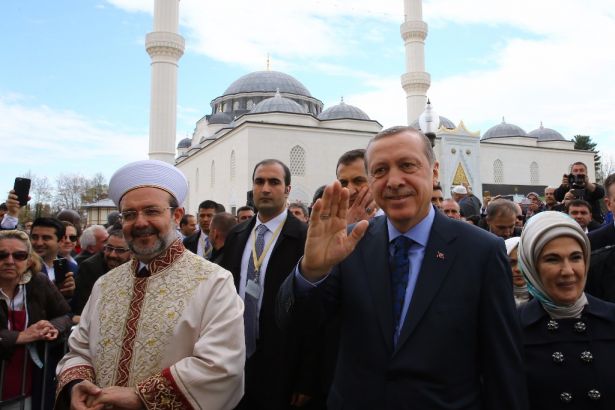Turkey’s Religious Affairs asks for more despite huge budget

Turkey’s Directorate of Religious Affairs called ‘Diyanet’ is still hungry for money despite a huge amount of budget allocated by the Turkish government under the rule of the Justice and Development Party (AKP). In the 2016 Annual Activity Report, Diyanet, indicating that a large amount of its budget was spent on the staff, asked for more money from the government.
It is known that Diyanet has much more budget and fewer staff than most of the ministries and state institutions.
According to daily Sözcü, Diyanet, which complained about the ‘‘lack of money’’, said that ‘‘yet, the majority of the budget allocated to the Religious Affairs is spent on the staff expenses’’, referring the domestic and international missions in the evaluation chapter of the report, and asked for much more budget from the government.
In the report, it is also determined that one of the biggest problems for the Religious Affairs is ‘‘shoe-string budget’’.
Diyanet, who did not satisfy its budget allocated despite taking the lion’s share among most of the ministries and state institutions, had previously come to the agenda due to an official car allocated to the Religious Affairs Directorate President Mehmet Görmez, which was worth 1 million TL.
2015 REPORT OF THE SUPREME COURT OF PUBLIC ACCOUNTS ON THE EXPENDITURE OF DİYANET
According to a report of the Public Administration Financial Table presented in the Regularity Audit Report of Supreme Court of Public Accounts (Sayıştaş) in 2015, the total expenditure of Diyanet was 6 billion 208 million TL in 2015, 4 billion 629 million TL of this amount was spent on personnel expenses. This amount also included the ‘‘travel allowance’’ of Diyanet for its staff, amounted to 62 million TL. The same report also indicated that the revenue of Religious Affairs was 397 million TL at that time, and 375 million of this revenue was received from the taxes paid by citizens.
According to a report in Birgün daily, The Directorate of Religious Affairs had also exceeded its initial allocation every year between 2006 and 2015. While the total initial allocation of Diyanet was 32 billion 902 million and 103 thousand TL in the last 10 year-period between 2006-2015, the total expenditure was 34 billion 970 million and 849 thousand TL. In the given 10 year-period, Diyanet exceeded its initial allocation 2 billion 68 million and 746 thousand TL. Total expenditure amount of the Religious Affairs is as follows during this period:
2015 6 billion 208 million 744 thousand TL
2014 5 billion 705 million 467 thousand TL
2013 4 billion 971 million 485 thousand TL
2012 4 billion 254 million 371 thousand TL
2011 3 billion 392 million 977 thousand TL
2010 2 billion 733 million 107 thousand TL
2009 2 billion 552 million 878 thousand TL
2008 2 billion 99 million 603 thousand TL
2007 1 billion 770 million 444 thousand TL
2006 1 billion 452 million 773 thousand TL
Diyanet’s budget has quadrupled under the rule of the Justice and Development Party, while the Religious Affairs continuously gives fatwas on the government’s demands as well as interfering in political issues and backing the reactionary position of political power in Turkey through promoting Sunni Islam.
It is known that Turkey’s Religious Affairs will have even a greater share government budget within the next five years, as its new strategic plan for the years of 2017-2021 purposes ‘‘becoming a source of inspiration for religious organisations both in the west and in the Islamic world’’. In 2017, allocated budget to Diyanet is approximately 6,8 billion TL, and this amount is much more than the budget allocated to twelve ministries including the ministry of economy, development, energy and natural sciences, science and technology, environment and urbanism, health, culture and tourism.



